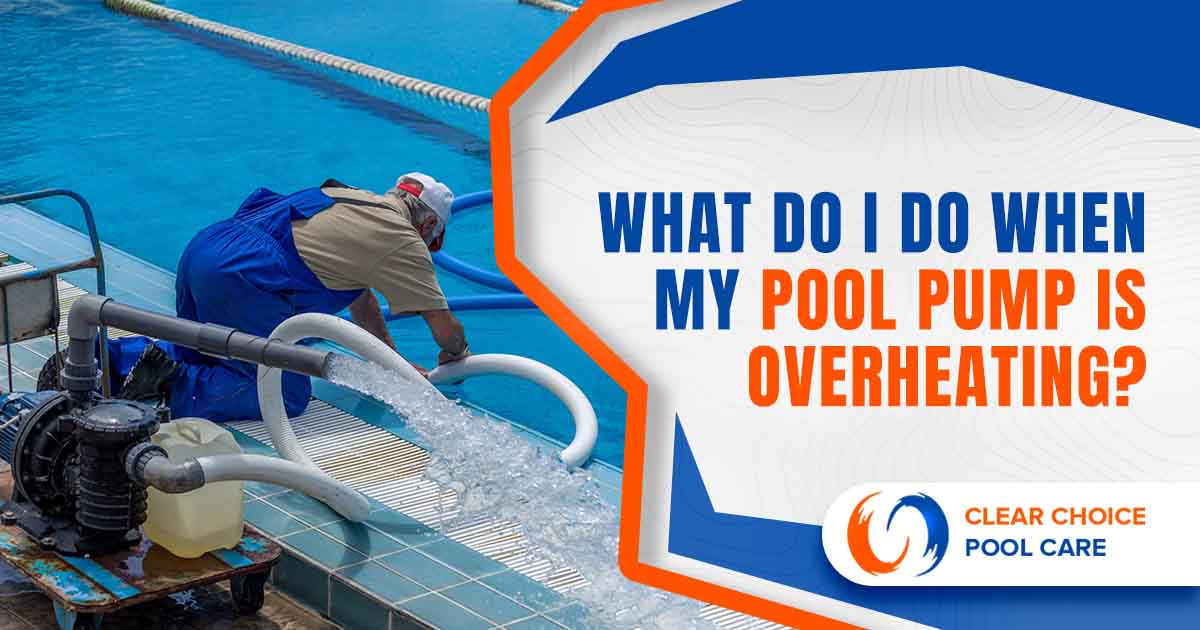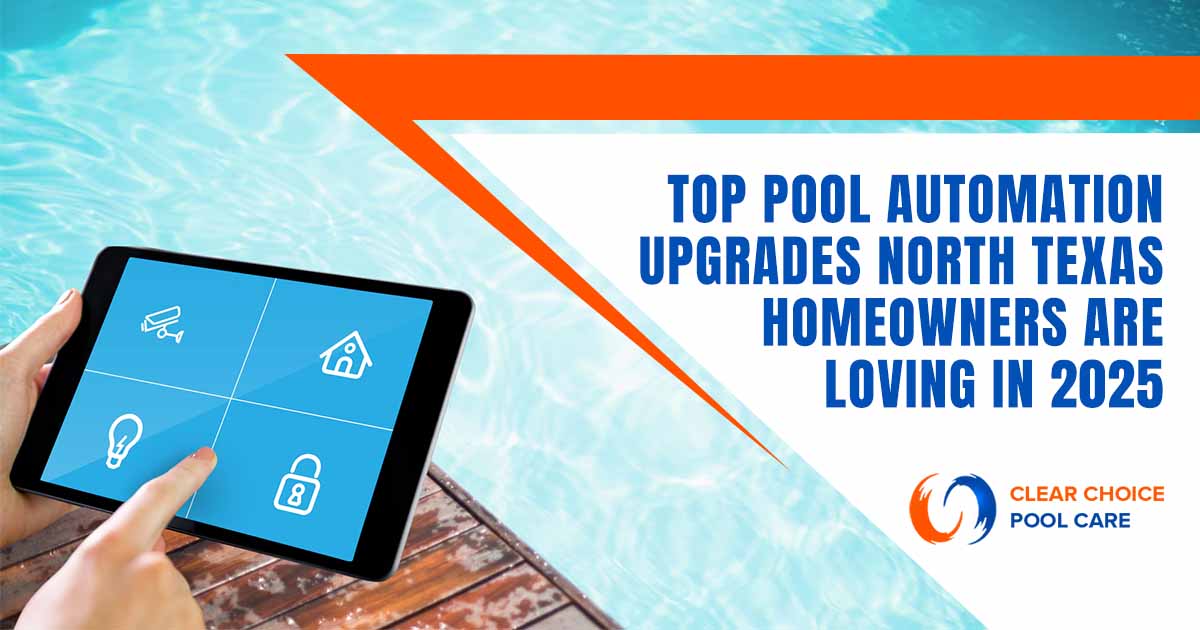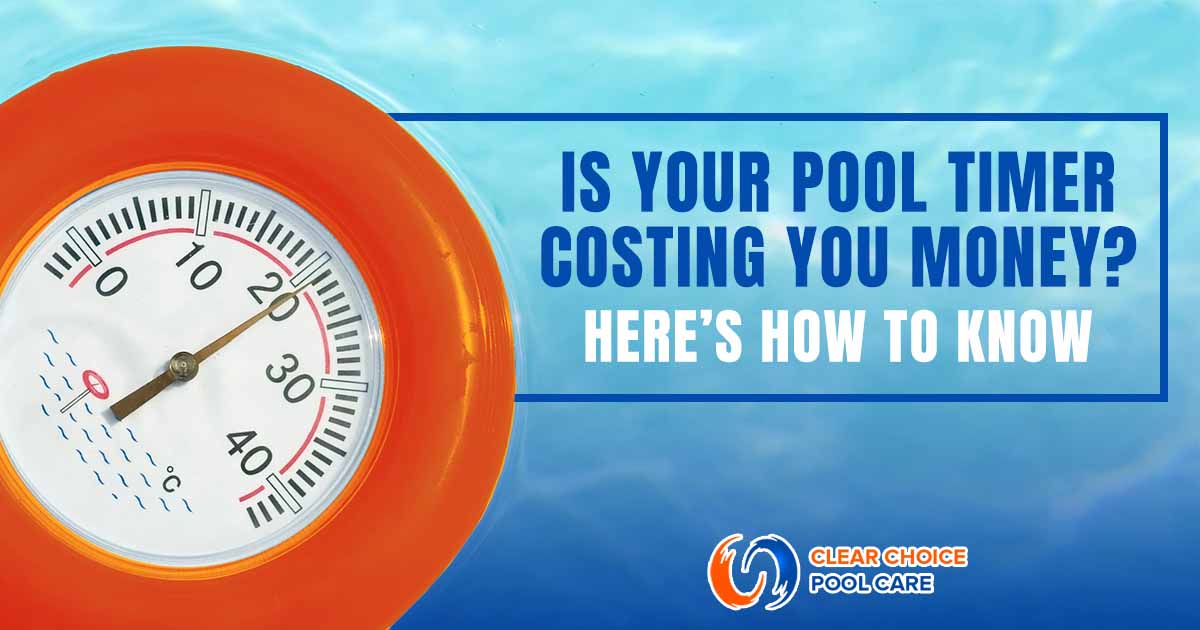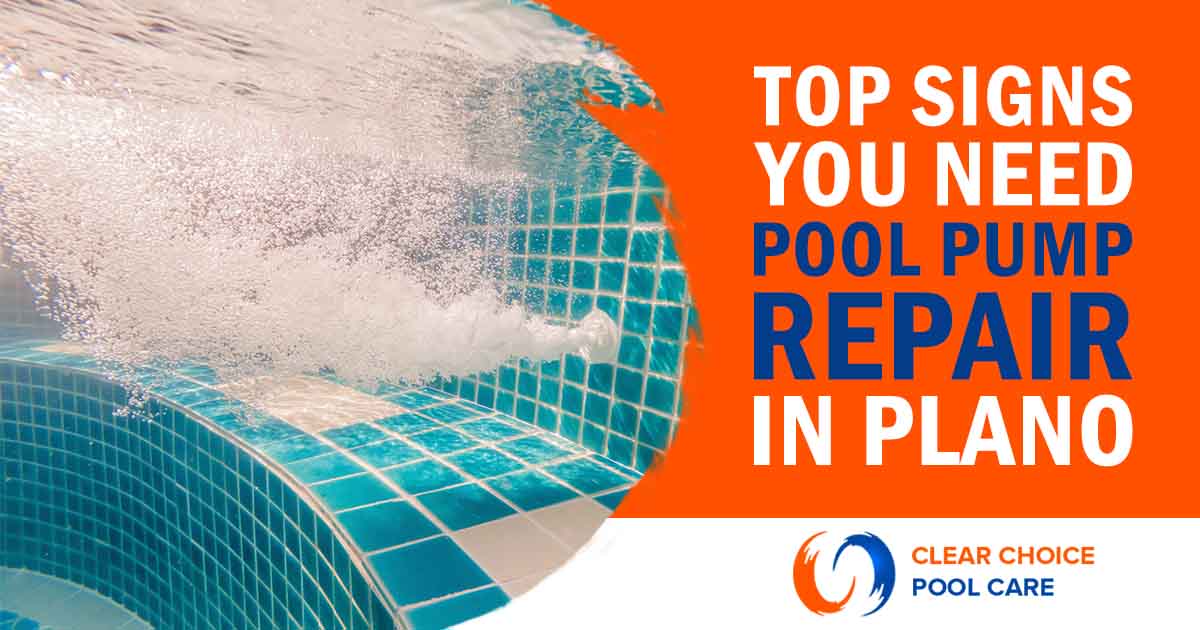Understanding Why Pool Pumps Overheat
Pool pumps can overheat for various reasons, many of which stem from operational or environmental factors. Identifying these causes early can help prevent long-term damage.
Common Causes of Pool Pump Overheating
- Blocked or Restricted Water Flow: Obstructions in the pool’s plumbing, such as debris in the skimmer basket or clogs in the pipes, can reduce water flow and cause the pump to work harder, leading to overheating.
- Dirty or Clogged Pool Pump Filters: When filters are not cleaned regularly, dirt and debris build-up, restricting water flow and increasing the strain on the pump motor.
- Insufficient Ventilation Around the Pump: A pool pump motor uses proper ventilation to dissipate heat. If landscaping or other objects block the area around the pump, the heat can accumulate and cause the motor to overheat.
Signs Your Pool Pump Is Overheating
- Unusual Noises or Vibrations: Grinding, humming, or rattling noises may indicate the pump is under excessive strain.
- Pump Shutting Off Unexpectedly: Many pool pumps have a thermal overload switch that shuts them off when they become too hot.
- Burnt Smell or Excessive Heat: If the pump emits a burnt odor or feels too hot to touch, it is likely overheating and needs immediate attention.
This foundational understanding allows pool owners to identify overheating problems early and take corrective measures to ensure the longevity of their pool pump.
Immediate Steps to Address Pool Pump Overheating
When a pool pump overheats, acting quickly to minimize damage is important and essential. Taking immediate steps can help prevent further issues and restore regular operation.
Turn Off the Pump to Prevent Further Damage
The first step in addressing an overheating pool pump is to turn off the power. Continuing to run an overheating pump can cause permanent damage to the motor or other components. Switching off the pump allows it to cool down safely and prevents additional strain on the system.
Inspect the Pump for Visible Issues
Once the pump has cooled, inspect it for obvious problems. Check the skimmer basket and filter basket for debris blocking water flow. Examine the pump housing for cracks, leaks, or other visible damage. Any obstructions or visible wear should be addressed before restarting the pump.
Allow the Pump to Cool Down Before Restarting
Before restarting the pump, ensure sufficient time to cool down completely. Running the pump while still hot may trigger additional overheating or further damage to internal components. Wait at least 30 minutes to an hour before attempting to restart the system.
Taking these steps immediately after identifying a problem with pool pump overheating can help protect the motor and minimize the risk of costly repairs. Further troubleshooting or professional assistance may be required if the issue persists after these initial actions.
Troubleshooting Pool Pump Overheating
If the pool pump continues to overheat after taking immediate action, troubleshooting specific components can help identify and resolve the issue.
Clean and Maintain the Pump Filters
Dirty or clogged filters are a common cause of pool pump overheating. Remove and clean the filters thoroughly to ensure proper water flow. Replace filters if they are excessively worn or damaged. Regular maintenance of the filters can prevent overheating and keep the pump running efficiently.
Check for Proper Ventilation Around the Pump
Adequate ventilation is crucial for the motor to dissipate heat. Inspect the area surrounding the pump to ensure it is free of obstructions, such as plants, pool equipment, or debris. Verify that the motor’s cooling fan is functioning correctly and free from dust or blockages. Proper airflow can significantly reduce the risk of overheating.
Examine the Electrical Supply and Connections
Faulty or inconsistent electrical supply can contribute to a pool pump overheating. Use a multimeter to test for voltage irregularities that may be causing the motor to work inefficiently. Inspect the pump’s wiring for damage, loose connections, or signs of wear. Addressing electrical issues promptly can prevent further overheating problems.
By systematically troubleshooting these components, pool owners can identify the root cause of the overheating and take appropriate action to resolve it.
When to Call a Professional Pool Service
Specific issues with pool pumps require the expertise of a professional pool service provider.
Persistent Overheating Issues Despite Troubleshooting
If the pool pump continues to overheat after cleaning the filters, improving ventilation, and checking the electrical supply, it may indicate a more complex problem that requires professional attention.
Identifying Complex Problems Requiring Expert Attention
Some issues, such as damaged motor bearings, a malfunctioning impeller, or internal motor defects, are best handled by experienced technicians. Attempting to repair these components without proper knowledge can lead to further damage.
Contacting a qualified pool service provider ensures the pool pump is repaired correctly and efficiently, minimizing downtime and avoiding additional costs.
Preventing Pool Pump Overheating in the Future
Preventative maintenance is the best way to avoid pool pump overheating and ensure long-term reliability.
Regular Pool Pump Maintenance Tips
Schedule routine inspections to clean filters, lubricate moving parts and check for signs of wear or damage. Addressing minor issues during maintenance can prevent them from escalating into more significant problems.
Optimize Pool Pump Usage
Running the pump during cooler parts of the day reduces strain on the motor. Consider upgrading to a variable-speed pump, which operates more efficiently and generates less heat than single-speed models.
By adopting these preventative measures, pool owners can extend the lifespan of their pool pump and reduce the likelihood of overheating issues.
Need Help with Your Pool Pump? Contact Clear Choice Pool Care Today!
If your pool pump is overheating and you need professional assistance, Clear Choice Pool Care is here to help. With expert pool maintenance and repair services, we’ll get your pool pump running smoothly again. Contact us today at 469-451-0222 to schedule your service call!





